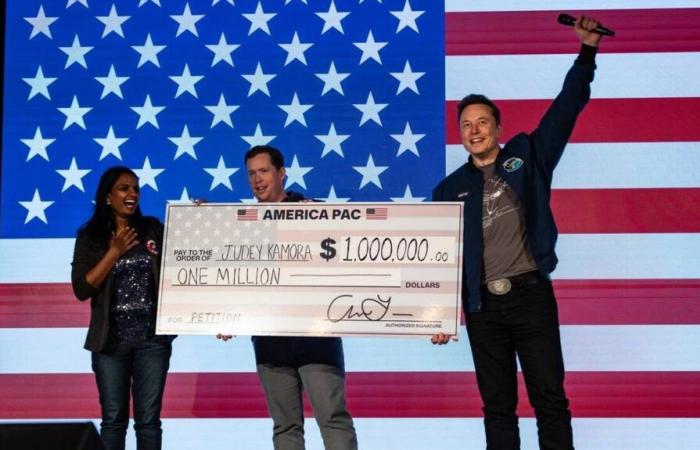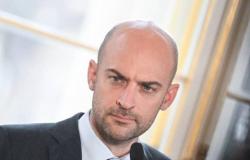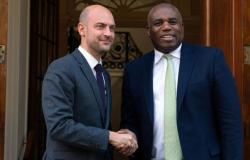In summary
The two main candidates, Donald Trump and Kamala Harris, have raised at least $2.5 billion throughout their 2024 presidential campaigns.
Several possibilities exist in the United States for citizens to send their donation to candidates.
The financing framework experienced a historic turning point in 2010 with the creation of “Super PACs”, which allow individuals to make unlimited donations.
Across the Atlantic, every citizen can donate as much as they want to elect the president. A few days before the vote in the American presidential election, the candidates, Democrat Kamala Harris and Republican Donald Trump, have raised at least $2.5 billion between them, thanks to citizen support. A figure revealed by OpenSecrets, a database maintained by the Center for Responsible Politics, a nonpartisan organization, based in Washington, which tracks monetary movements in political activities.
What possibilities are available to citizens to send donations to candidates? What is the limit? And who supervises these donations? Elements of response.
Read also: VIDEO SURVEY. How Elon Musk is trying to swing the US election
What possibilities are available to citizens to send money to candidates?
Several possibilities exist. First of all, US citizens can make donations directly to the campaign of the candidate of their choice up to a limit of $3,300 per election. Over the course of a year, they can also contribute up to $41,300 to a party's national committee as well as $10,000 to its local branches, according to rules set by the Federal Election Commission (FEC), which is one of the country's election finance monitors.
Another possibility for donors: contribute $5,000 per year to PACs (“ political action committee » in English), in other words political action committees, which are private organizations and classified by law as being officially linked to a candidate's campaign.
So in total, small donors, which cover almost all U.S. citizens, can give about $60,000 per year to an election campaign.
However, millionaires or billionaires can get around these limits in other ways, so they can give more to candidates.
What are these famous “Super PACs” that allow you to do everything?
Since 2010, a new structure has been added to the game: “Super PACs”. “A Super PAC is a PAC, but one which has no official link with the candidate's campaign, explain Romuald Sciora, director of the Iris United States Political and Geostrategic Observatory. These organizations can receive any amount of money and it is through these “Super PACs” that today we reach absolutely astronomical sums. »
In 2010, the United States Supreme Court issued a ruling called “Citizens United v. Federal Election Commission”, a historic measure which lifted the ceiling on electoral campaign spending and generated the creation of these “Super PACs”.
What motivated such a decision? “According to the Supreme Court, the fact that an American citizen cannot express himself through donations given to a political party or a candidate, to the extent that he would like, is an attack on the freedom of 'expression of the Americans', adds Romuald Sciora. “As we know, in the United States, freedom of expression is total. In France and Europe, things are more regulated,” he continues.
Elon Musk, one of the richest men in the world and the boss of the social network Trump, between January and October 16, according to the FEC website.
Nothing comparable with France where, for the presidential election, “donations from individuals are limited to €4,600 per donor”.
How much money was raised and spent?
Over the past few decades, funding for American presidential campaigns has exploded. Kamala Harris currently holds the fundraising record, with $1.5 billion raised from her supporters, a figure as of October 17 according to the OpenSecrets database. This amount includes that recorded for Joe Biden, the former Democratic candidate who threw in the towel in July.
On the Donald Trump side, the Republican candidate received 1 billion dollars.
If the culture of “fundraising” (“fundraising” fundraising » in English) has existed for years in the United States, their amount exceeded the symbolic threshold of one billion for the first time in 2020, for Joe Biden.
“In terms of dynamics, on the Democratic side, the number of small donors declined during the 2020 campaign and picked up again this year with the arrival of Kamala Harris, deciphers Romuald Sciora. But we are very far from the level of donations that we experienced during the era of Barack Obama or Bill Clinton, who aroused unprecedented enthusiasm since the election of John F. Kennedy in 1960.”
For Republicans, the enthusiasm for the former American president is “unprecedented in the history of the party”, specifies the specialist.
Note that in terms of spending, a colossal sum of $5.7 billion was recorded for the 2020 campaign, the most expensive election in the history of the United States, according to analyzes by OpenSecrets.
Still for comparison with France: the spending ceiling is set at €16,851,000 for the candidates in the first round and at €22,509,000 for the two candidates in the second round.
Why is the system criticized?
For Romuald Sciora, the decision of the Supreme Court to launch “Super PACs” in 2010 turns out to be contradictory with its primary objective because it ends up “attack on democracy”.
According to the director of the Observatory, “Super PACs” are today very often factors of fake newsby producing misleading advertisements or articles, as they are not officially linked to the campaign.”
Furthermore, this system without a ceiling has profoundly weakened the possibilities for a third party to be heard in the country. “There are many small, very serious parties in the United States, for example the Green Party or the Libertarian Party, which are anchored in the American political landscape but which are almost unknown to the majority of citizens,” explained Romuald Sciora.
What are the consequences? “As there is no regulation and no right to speak in the media, the candidates who have the most money are those who are most present in the media. A vicious circle. »
But the situation is not new in this liberal country. “The desire to extend freedom of expression to excess […] ends up killing freedom of expression itself,” concludes the specialist.






